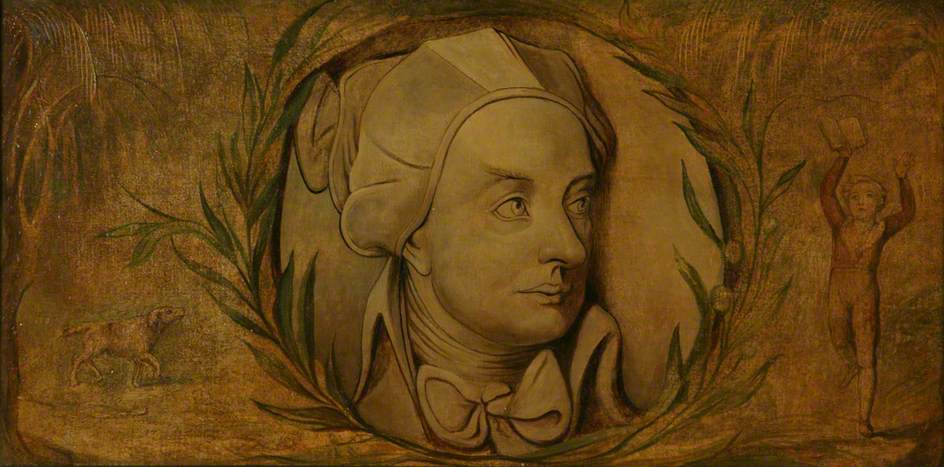|
“God moves in a mysterious way.” The English poet and hymnodist William Cowper coined this adage in his poem Light Shining out of Darkness in 1773. Now known as God Moves in a Mysterious Way, the poem is sung as a hymn in many Christian churches. Cowper was an associate of John Newton (see previous article) and wrote poems in support of the Abolitionist campaign. He also wrote several famous hymns.
Cowper was born in Berkhamsted, Hertfordshire on 26th November 1731. His father John was rector of the Church of St Peter and his mother, Ann, sadly passed away after giving birth to his younger brother. The death of Cowper’s mother greatly affected the young boy and she became the subject of his poem On the Receipt of My Mother’s Picture, which was written five decades later. Moving from school to school because of severe bullying, Cowper eventually settled at Westminster School in 1742. Here he made life long friends and enhanced his love of reading. Afterwards, Cowper began to train for a career in law at Ely Place, Holborn and hoped to settle down with his sweetheart Theodora. Unfortunately, Theodora’s father rejected the match and Cowper began to experience bouts of depression. In 1763, Cowper was offered a position as Clerk of Journals at the House of Lords but suffered a mental breakdown at the thought of the exams this required. After trying to commit suicide on more than one occasion, Cowper was admitted to an asylum in St. Albans. After his recovery, Cowper moved in with a retired clergyman in Huntingdon, Cambridgeshire. Reverend Morley Unwin and his wife Mary got on so well with Cowper that they invited him to move with them to Olney near Milton Keynes. It was in Olney where Cowper met John Newton who invited him to contribute to a hymnbook he was compiling. Known as the Olney Hymns, Cowper contributed several hymns, including the one now titled God Moves in a Mysterious Way. Written shortly before another bout of severe depression, the six verses encourage people to trust God’s greater wisdom in the face of trouble or uncertainty. In 1773, Cowper once again became mentally unwell. He believed he was eternally condemned to hell and hallucinated that God was commanding him to sacrifice his life. Mary Unwin, who Cowper was still living with despite her husband having passed away, took great care of him until he was well enough to focus on writing poetry again. Cowper and Mary Unwin moved to Weston Underwood in Buckinghamshire in 1786 where Cowper began a lengthy project, translating Homer’s Iliad and Odyssey into English. During this time, he met and befriended Dr John Johnson, a clergyman in Norfolk, who Cowper and Mary moved to be near in 1795. Unfortunately, Mary died the following year and Cowper relapsed into depression, which he never fully overcame. Dr Johnson looked after Cowper for the rest of his life. In 1800, Cowper was diagnosed with dropsy and died soon after. He is buried in the chapel of St Thomas of Canterbury in East Dereham and is honoured by a window in Westminster Abbey. Amongst Cowper’s many hymns are the following, which we either sing in our church or are at least recognisable:
Cowper is remembered mostly for his poems, particularly The Negro’s Complaint, written in 1788. Originally intended to be sung, the poem talks about slavery from the perspective of a slave. He was likely inspired by John Newton’s experience aboard a slave ship. The poem became popular during the civil rights movement of the 20th century and was often quoted by Martin Luther King Jr.
0 Comments
Your comment will be posted after it is approved.
Leave a Reply. |
©Copyright
We are happy for you to use any material found here, however, please acknowledge the source: www.gantshillurc.co.uk AuthorRev'd Martin Wheadon Archives
June 2024
Categories
All
|

 RSS Feed
RSS Feed